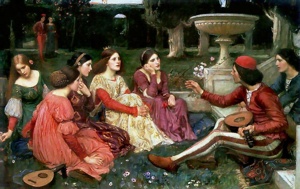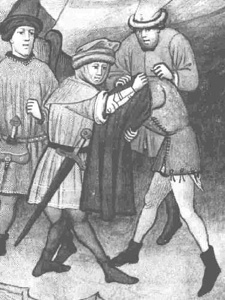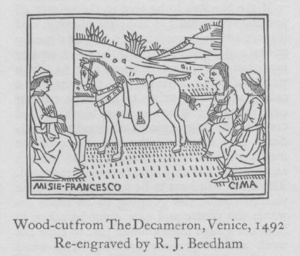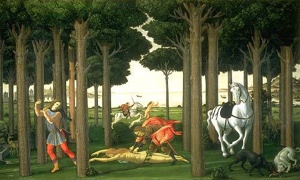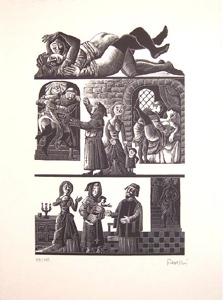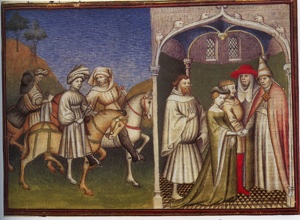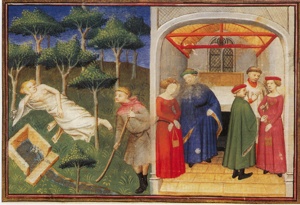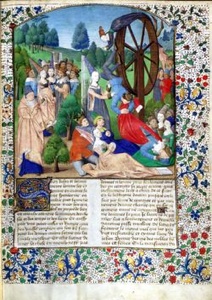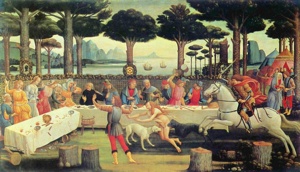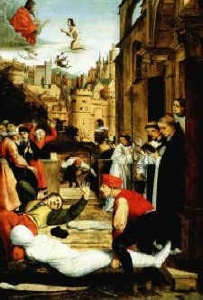This is the first list of many more to come, which will explore books that our readers may not have read. The aim is for us all to increase our literary knowledge. If you would like to suggest books that may be worthwhile including in future lists, tell us in the comments.
- Day One
Under the rule of Pampinea, the first day of story telling is open topic. Although there is no assigned theme of the tales this first day, six deal with one person censuring another and four are satires of the Catholic Church.
- Day Two
Filomea reigns during the second day and she assigns a topic to each of the storytellers: Misadventures that suddenly end happily. 3. Day Three
Neifile presides as queen during the third day. In these stories a person either has painfully acquired something or has lost it and then regained it.
- Day Four
Boccaccio begins this day with a defense of his work as it is thus far completed. Although he says that portions of the earlier days were circulating among the literate citizens of Tuscany while the work was in progress, this is doubtful. Instead, Boccaccio is probably just shooting down potential detractors. Filostrato reigns during the fourth day, in which the storytellers tell tales of lovers whose relationship ends in disaster. This is the first day a male storyteller reigns. 5. Day Five
During the fifth day Fiammetta sets the theme of tales where lovers pass through disasters before having their love end in good fortune.
- Day Six
During the sixth day of storytelling, Elissa is queen of the brigata and chooses for the theme stories in which a character avoids attack or embarrassment through a clever remark. Many stories in the sixth day do not have previous versions. Boccaccio may have invented many of them himself. He certainly was clever enough to have created the situations and the retorts. 7. Day Seven
During the seventh day Dioneo serves as king of the brigata and sets the theme for the stories: tales in which wives play tricks on their husbands. Stories of this type are typical of the misogynistic sentiment of the Medieval era. However, in many of the stories the wives are portrayed as more intelligent and clever than their husbands. Though Boccaccio portrays many of the women of these stories in a positive light, most of the men in the stories are stereotypical medieval/Renaissance cuckolds. 8. Day Eight
Lauretta reigns during the eighth day of storytelling. During this day the members of the group tell stories of tricks women play on men or that men play on women. 9. Day Nine
Emilia is queen of the brigata for the ninth day. For the second time there is no prescribed theme for the stories of the day (the only other time was during the first day). 10. Day Ten
Panfilo is the king of the last day of storytelling and he orders the company to tell stories about deeds of munificence. These tales seem to escalate in their degrees of munificence until the end, where the day (and the entire Decameron) reaches an apex in the story of patient Griselda.
Source: J. M. Rigg English translation (1903) Read More: Twitter Facebook YouTube Instagram
